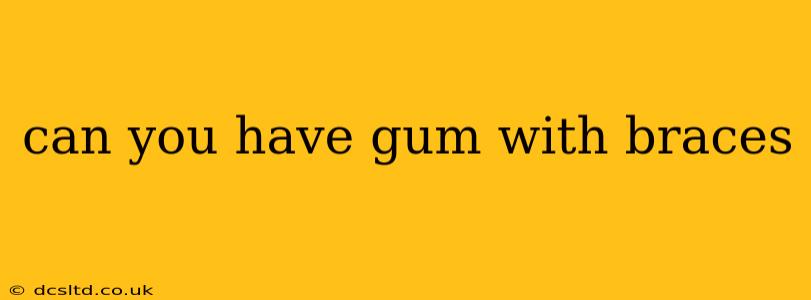Having braces significantly alters your oral hygiene routine and dietary habits. One common question many brace-wearers have is: can you chew gum with braces? The short answer is: it depends. While some types of gum might be acceptable, others can pose serious risks to your orthodontic treatment. Let's delve into the details.
What Kinds of Gum Are Okay With Braces?
The key is to choose sugar-free gum that's soft and won't get stuck in your braces. Hard, sticky gums are a definite no-no. Sugar-free options help prevent cavities and gum disease, which are even more important to consider when you already have the added challenge of cleaning around brackets and wires. Look for gums specifically labeled as "sugar-free" and "xylitol gum", as xylitol helps fight cavities. Even with sugar-free options, moderation is key.
What Types of Gum Should You Avoid With Braces?
Several types of gum should be avoided entirely while wearing braces:
-
Hard Candies and Chewing Gum: These can damage or break your brackets and wires, leading to costly repairs and potentially extending your treatment time. The force exerted while chewing these can also shift your teeth, undoing the progress your orthodontist is working toward.
-
Sticky or Taffy-Like Gums: These gums can easily get stuck in your braces, becoming difficult to remove and potentially causing damage. Getting it out can also pull or bend wires, leading to pain and potential treatment delays.
-
Gums With Added Sugar: Sugar contributes to plaque buildup and increases your risk of cavities and gum disease, both of which can complicate orthodontic treatment.
Can Chewing Gum Damage My Braces?
Yes, chewing certain types of gum can absolutely damage your braces. The force applied when chewing hard or sticky gums can dislodge brackets, bend wires, or even break them completely. This can lead to:
- Extended Treatment Time: Repairs are necessary, pushing back your overall treatment schedule.
- Increased Cost: Repairing damaged braces can add significant expense to your orthodontic bill.
- Discomfort and Pain: Damaged braces can cause pain and discomfort in your mouth.
What Happens if Gum Gets Stuck in My Braces?
If gum gets stuck in your braces, do not try to forcibly remove it. This can further damage your appliance. Instead, try gently rinsing your mouth with water to loosen it. If it persists, contact your orthodontist for assistance. They have the tools and expertise to safely remove the gum without causing any harm.
Is Sugar-Free Gum Better Than Regular Gum With Braces?
Absolutely! Sugar-free gum is a significantly better choice than regular gum when wearing braces. The absence of sugar reduces your risk of cavities and gum disease, which is crucial for maintaining good oral health during your orthodontic treatment. However, remember that even sugar-free gum should be consumed in moderation and should be soft.
Can I Chew Gum to Clean My Braces?
No, chewing gum is not a substitute for proper brushing and flossing. While some might suggest it helps clean braces, it's not an effective method and could be detrimental. Always prioritize thorough brushing and flossing, as well as using an interdental brush to clean around your brackets and wires. Your orthodontist can provide specific recommendations for maintaining optimal oral hygiene with braces.
In conclusion, while some soft, sugar-free gums might be acceptable in moderation, it's crucial to prioritize the health and longevity of your braces. Always consult your orthodontist for personalized advice on what is safe to consume during your orthodontic treatment. They'll be able to provide guidance tailored to your specific needs and brace type, ensuring a successful and comfortable orthodontic journey.
